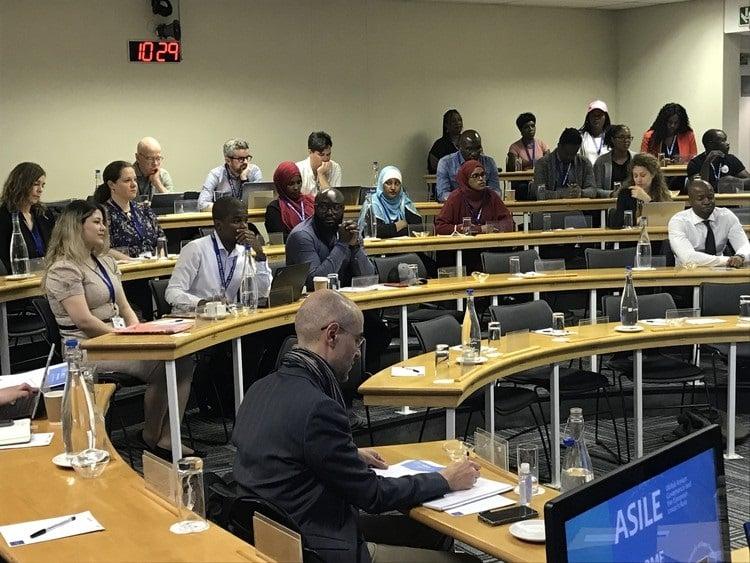Africa-Press – South-Africa. The Minister of Home Affairs failed to consider the constitutional rights of children born and raised in South Africa when deciding to scrap the Zimbabwean Exemption Permit (ZEP).
This is according to the advocate representing ZEP holders in the court challenge to the government’s decision.
The advocate highlighted that for many of these children, “South Africa is the only country they know.”
He was speaking at an event in Cape Town on Wednesday with other lobby organisations and ZEP holders. The event was organised by the UCT Refugee Rights Unit and the Centre for European Policy Studies.
In 2009, the South African government introduced a Dispensation of Zimbabwean Permit (DZP) to legalise the many Zimbabwean nationals already living and working in the country because of the political and socio-economic situation in Zimbabwe.
Zimbabweans who had applied for asylum were encouraged to apply for a DZP.
When applying, their asylum documents were retained by the Department of Home Affairs. About 295 000 Zimbabweans had applied for the DZP and about 245 000 permits were issued.
The DZP was valid for four years. In 2014, the DZP was renamed the Zimbabwe Special Permit (ZSP), and in 2017, to the Zimbabwe Exemption Permit (ZEP).
In November 2021, Cabinet announced that it would no longer extend the validity of the ZEP. Initially, the permit was to expire in December 2021, leaving almost all of the 180 000 permit holders undocumented.
But advocacy groups intervened and the government granted a 12-month grace until December 2022, which was again extended to June 2023.
This was to give people more time to apply to remain in South Africa on a critical skills permit, although very few ZEP holders meet the stringent critical skills criteria.
The Zimbabwean Exemption Permit Holders Association (Zepha) first lodged court action against Home Affairs. Advocate Simba Chitando filed the papers in the Gauteng High Court in October, requesting the government to grant ZEP holders permanent residency.
Then the Helen Suzman Foundation (HSF) and the Zimbabwe Immigration Federation initiated court action against Home Affairs Minister Aaron Motsoaledi in a bid to overturn the decision.
Other groups giving their backing in the litigation include the Consortium for Refugees and Migrants in South Africa (Cormsa), the Scalabrini Centre and the UN High Commissioner for Refugees.
On Wednesday, one of the advocates for the applicants in the HSF court bid told GroundUp that the case was set to be heard in the Gauteng High Court in Pretoria from 11 to 14 April.
“The core relief is to get the decision to terminate the ZEP set aside and that some form of interim measures be in place to protect ZEP holders until the minister can take a proper decision,” he said.
The advocate added that the Allied Strikers Forum of South Africa and Operation Dudula were trying to join the state as respondents in the case.
ZEP holders tell their stories
During the event, several ZEP holders also spoke about how the government’s decision drained their families emotionally. Some people could not hold back their tears while sharing their stories.
“How can I be in a country, where I came as a minor and be expected to pack my bags to go to Zimbabwe?” asked Portia* who has a PhD in Law at the University of Cape Town (UCT).
Portia moved to South Africa when she was 16 years old and is currently doing post-doctorate studies at UCT.
“My attachment to Zimbabwe is not as strong as it is with South Africa. My whole education was in South Africa… I obtained my bachelor’s degree, master’s and completed a PhD using ZEP. … I can’ t explain how much this fiasco is affecting me mentally and my career,” she said.
Tendai* has been teaching science at a high school for 13 years. He worries about his family’s quality of life and safety if they are forced to return to Zimbabwe.
“We were considered supporters of the opposition party MDC and so I ran away to South Africa. My youngest child was two and my son was in Grade 2,” he said.
Tendai said that his son was in his second year at university and his daughter was in matric this year.
“I have contributed a lot to South African society and been a loyal taxpayer. This is where my life is centred. I have built my whole life around Cape Town. Going back to Zimbabwe at this time – I don’ t know where I would start.
“How’s my daughter going to finish her school? I will fail to provide for my child. Am I going to terminate my children’s education so that she doesn’t have a future anymore? The emotional stress we have to go through [is too much],” he said.
For More News And Analysis About South-Africa Follow Africa-Press






